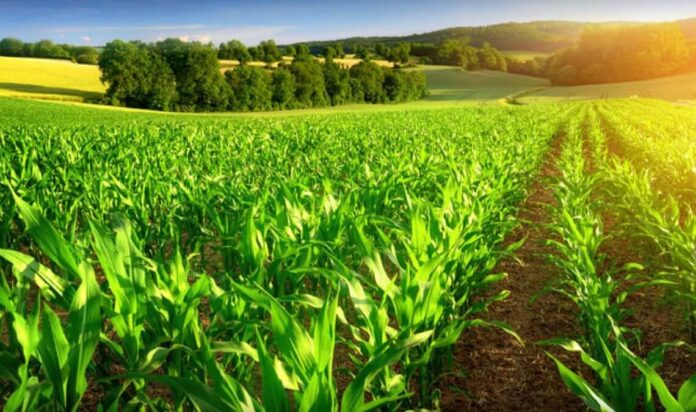Farmers in the Hadejia-Jama’are River Basin Development Authority can produce 3.6m tonnes of rice every year, Managing Director of the authority, Mr Ma’amun Da’u Aliyu, has reported.
He said that the basin covers over 300,000 hectares of irrigation farmland under its control.
He said that the rice t be produced would meet 66.7 per cent of Nigeria’s yearly rice demand.
The mandate of the authority included the development of land, and utilisation of underground and surface water for irrigation activities, erosion control, construction of dams and supply of drinking water to the environments within its catchment areas of Kano, Bauchi and Jigawa States.
”At an average of six tonnes per hectare, when you talk of 306,000 hectares, you will be arriving at probably 1.8 million tonnes of rice per season.
“And you know the annual requirements of rice production in Nigeria is about 6.4 million tonnes, so when you are able to produce 1.8 million tonnes of rice per season, when you multiply by two seasons you will get 3.6 million tonnes.
“And that is adequately half of Nigeria’s rice requirement, precisely 66.7 per cent of the Nigeria’s rice production coming from this river basin,” the managing director said.
Aliyu expressed the authority’s commitment to providing suitable land for mass irrigation towards achieving national food security if given the necessary financial support and the stakeholders’ cooperation.
Speaking about wheat production, Aliyu said:”the Hadejia-Jama’are river basin can not produce more than 33 per cent of Nigeria’s wheat requirements due to its planting nature.
“Because we can only cultivate wheat once in a season is only cultivated between November and March.
“You will be able to cultivate 33 per cent of Nigeria’s wheat requirements from this river basin authority,” he explained.
The managing director reassured the authority’s commitment toward achieving a steady growth despite its challenges and dynamic operational systems regarding sufficient funding and the required manpower.
“We need more human resources, capacity, more staff to be employed to manage our schemes very well, adequate budget provision from the federal government in order to sustain the operational capacity of authority,” Aliyu said.
“When it comes to irrigation, you know the authority has control over 22,000 to 27,000 hectares of land currently under the irrigation of north and east around Kura, Garin Malam and Bunkure.
“That scheme has been in existence since the time of the Military Governor of Kano State, Audu Bako, in the early 70s, then it was later transferred to the Federal Government to continue with the management of the dam which is why Hadejia Jama’are River Basin Development Authority was created to manage the water bodies and to also continue managing the irrigation schemes.
“From 22,000 hectares capacity, 16,500 is now fully functional but you know managing facilities like that requires huge amount of money, huge resources, requires a lot of expertise and personnel but we have been able to continue managing it very well.
“Recently the federal government intervened through the Transforming Irrigation Management in Nigeria (TRIMING) project and has taken over the project from us to fully rehabilitate before it hands over to us and to the farmers to continue to manage it.
“We spend billions annually to manage the dams. Tiga Dam has the capacity of 1.9 billion cubic meters of water which is being utilized for the irrigation activities.
“The water is being released from Tiga dam, it goes to the Hadejia Barrage where we have another 6,000 hectares which is under rehabilitation by the triming project also.
“It is the water from Tiga went to Hadejia Barrage, and it is used to cultivate the 6,000 hectares under Hadejia Jama’are irrigation scheme.
The two projects combined have the capacity of over 30,000 hectares which if fully utilise and put under irrigation we will be able to supply the water requirements for irrigation activities for rice and wheat production.
So far so good, we have been working closely with our farmers and they have been given the cooperation,” he said.




